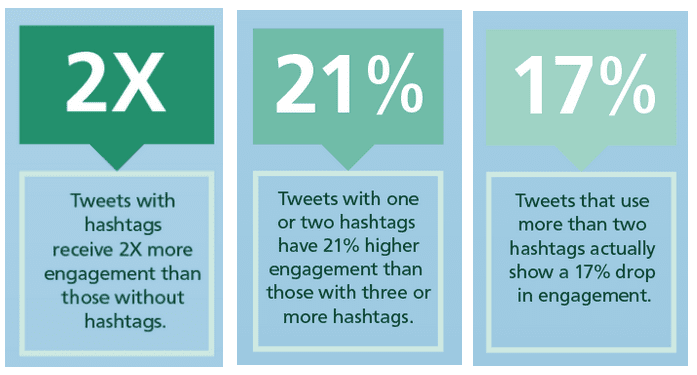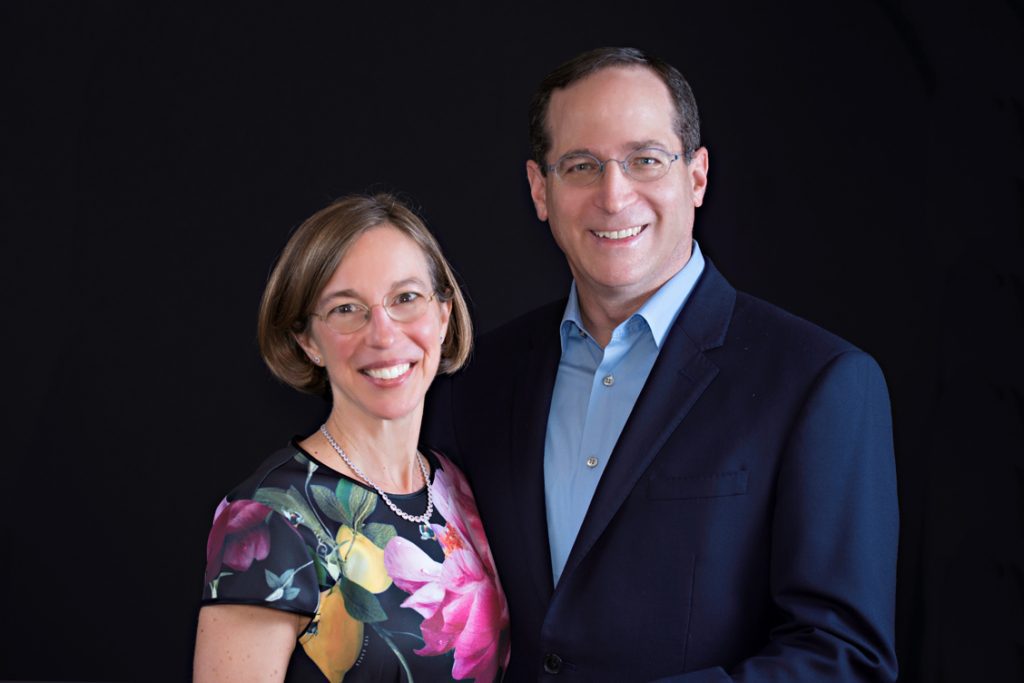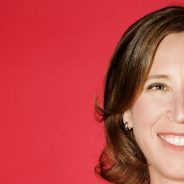Search results for :
How An MBA Degree Can Land You a Job at Pfizer
MBA grads looking to make headway in an ever-expanding field with massive growth potential should look no further than healthcare and pharmaceuticals. There’s a reason more and more business school graduates have begun to pursue pharma over more tried-and-true post-MBA paths like real estate, consulting, and finance: the pharma industry offers a myriad of opportunities. There’s an almost inexhaustible supply of interesting problems to solve while earning boast-worthy salaries.
When it comes to major industry players, Pfizer is one of the undisputed global pharmaceutical leaders. Many of its products have burrowed their way into popular consciousness—both figuratively and literally. Lipitor, Viagra, Zoloft, Xanax, Advil, ChapStick, Preparation H, and Robitussin are iconic brands unto themselves.
Below, we’ll take a deeper look into exactly how MBAs can gain a foothold at Pfizer.
Why Do MBAs Love Pfizer?
Pfizer’s name brand recognition just so happens to correlate with a stellar internal reputation among employees, both past and present. Forbes, Fortune, LinkedIn, CareerBliss all consistently rank Pfizer as one of the happiest, most employee-centric, and/or most in-demand employers in the American pharma space.
In an interview with the Stevens Institute of Technology blog, Pfizer Senior QA Manager Bill Mestrandrea, a Stevens MBA alum, spoke of the deep camaraderie that he has with his fellow MBAs at Pfizer, comparing it to a “band of brothers.”
He elaborates: “We’re all in it together. I’ve met people from other departments who my work influences, and they’ve influenced my work as well. It gave me a better understanding of the network within Pfizer, and how it all comes together to form one company, always working in support of our patients.”
An anonymous former Pfizer employee took to Glassdoor to extol the company’s virtues: “If you can keep up with the fast pace and are not overly sensitive, Pfizer is a great to work. Everyday is an adventure and the benefits are excellent.” An anonymous Technical Specialist in the New York branch lauded Pfizer’s “great gym, clinic, cafeteria, and day care” in a Forbes profile.
Payscale reports that MBAs earn an average starting salary of around $121,000. Pfizer prides itself on a competitive compensation and benefits package that rewards employees “based on the contributions they make to [the] business.”
The company offers a number of in-house health and wellness programs, including health and disability insurance, medical screening, free or reduced-cost vaccinations, discounts on Pfizer products, and nutrition and fitness counseling. As part of the benefits package, Pfizer also offers access to colleague-directed retirement funds, company contributions to retirement financial vehicles, life insurance, and financial planning education.
Working at Pfizer
If there’s a common thread that runs through day-to-day life for all MBA grads at Pfizer, no matter their function, it’s that they’re all expected to move quickly and keep up with the constant demand. Pfizer is sympathetic and has sought out solutions to help acclimate first-year MBAs—namely, its Summer Associate Program, which has placed alum in full-time roles for the past 15 years.
Pfizer’s 10-12 week Summer Associate Program recruits and provides “first-year MBA students from top-ranked business schools … with a variety of unique experiences that will serve to develop and broaden critical skill sets and competencies as they progress their development towards leadership roles within Pfizer.”
Students are assigned challenging projects within Consumer Marketing, Corporate Audit, Corporate Finance, Global Procurement, Pfizer Consulting & Execution, and Pharmaceutical Marketing. By the end, Summer Associates “gain a wealth of valuable industry knowledge, networking opportunities, and life experiences.”
According to Pfizer, “MBA Summer Associates receive an industry competitive salary, housing support options and the prospect of conversion to a full-time opportunity upon the completion of their MBA degree.”
Jane Scholl (Columbia Business School ’12), whose healthcare resume stemmed from a desire to “improve the lives of others,” discussed the way her 2012 internship led to a position with the Marketing Rotational Program the following year:
“Though I only spent three months with Pfizer during the summer, I was treated as a valued member of the team rather than an intern. I was encouraged to share my thoughts and ideas even if they differed from those of other colleagues. I worked on meaningful projects that contributed to the business, and some of my recommendations were implemented before the end of the summer.”
Oindrila Sardar (Chicago Booth ’11), a Senior Manager at Pfizer’s Established Products Marketing Platform, discussed the relationship she had with the rotation managers during her Summer Associate internship:
“My rotation managers have played a critical role in my development with weekly one-on-one meetings and their insightful project guidance. They have been receptive to my interests and have matched them with meaningful assignments Throughout my rotations I have worked with cross-functional colleagues from many areas of the company which has helped me further understand Pfizer and its structure. I have been surprised by the high level of trust and responsibility given from the very beginning.”
Landing a Job at Pfizer
It’s pretty straightforward: Pfizer’s Summer Associate Internship is a surefire way for MBAs to get hired. In fact, 16 out of its recent 25 summer associates were extended full-time offers. That said, there’s plenty of recruitment that takes place outside the sacred intern space.
In the fall, Pfizer aggressively targets top MBA programs, particularly in the Mid-Atlantic and Northeast close to its New York HQ. The company is interested in drawing from a pool of diverse and competitive first-year applicants, especially those with a taste for finance, marketing, global supply, and general management. Although previous pharma experience will make your application more competitive, Pfizer is equally interested in applicants with compelling reasons for a career change.
Interviews begin in January and run until March. Pfizer sometimes conducts group interview sessions in which four or five applicants discuss issues with staff members. This process is designed to understand which folks will make a meaningful contribution to a Pfizer culture with many distinct and occasionally contentious points-of-view.
Social Media Do’s and Don’ts MBAs Need To Know
Social media can be an impossibly powerful tool. It is the president’s favorite method of communication, after all. Social media can also determine the future for MBA applicants and candidates.
For better or for worse.
U.S. News & World Report found that 35 percent officers interviewed do check out applicants’ social media accounts. What they find might increase a person’s chance of getting in—or could diminish it. Social media could say a lot about a person that may not be clear in an essay or recommendation letter. So why would school’s not at least be safe and check it out?
“To be clear, the large majority of admissions officers do not visit applicants’ social media sites,” Yariv Alpher, Executive Director of Research at Kaplan Test Prep, said. “However, a meaningful number do, as many note that social media can provide a more authentic and holistic view of applicants beyond the polished applications. And in fact, past Kaplan surveys have shown that a majority of students themselves consider their social networking sites to be ‘fair game’ for admissions officers.”
Well, that means applicants and even students must be really intentional—and careful—about how they use platforms like Facebook, Twitter, or Instagram. Otherwise, they could be looking at revoked acceptances or even long-term suspensions.
There is a science to the art of social media postings. And we’ve got you.
Do
Share achievements and wins. Let’s say you’re set to speak on a panel next week; you should tweet about it. Let the world know to be there. When you do speak, make sure someone takes a pic—and share it. Flaunt your accomplishments while staying humble. New job? Let the Internet know. Published a research article? Inform people.
Don’t
Publicize how you celebrate said achievement. Well, unless that celebration is PG. Even then, though, not everything needs to be broadcast to the world, especially if it involves alcohol. Too many college students or teenagers share photos of them on a night out, but that could be a turn off to admissions officers. So unless you’re sharing a cocktail with a celebrity or business goddess, maybe save the photo for family albums, instead.
READ THIS: Wharton MBAs Will Get You Out Of The Social Media Bubble
Do
Be yourself. You want to stay true to you and be an authentic presence online. There are enough imposters acting as a better version of themselves. And sometimes, it’s just too obvious. So let your posts breathe and let officers get a sense of who you are when they take a look at your social media pages. Maybe that means having an inspirational quote in your bio. Whether it’s Kanye West or Steve Jobs says a lot about who you are. And officers should appreciate that.
Don’t
Be reckless about the version of yourself you show. You gotta’ keep it real, but be mindful about what sides of yourself you showcase, too. A cuss word here or there shouldn’t keep a future school or employer from viewing you negatively, but racist or insensitive language would (and should). Certain behavior and ideology are unacceptable, and if that’s how you’re thinking, you need to take a hard look at yourself.
Do
Brand yourself. Ain’t nothing wrong with whipping up a logo and showcasing it online. Or launching a website that you flaunt on your Facebook page. You want schools to know that you’re already business-savvy and show them that you recognize your most valuable business: yourself. Branding yourself through a clever Twitter handle or website domain is a start. Think color schemes and photos. All the pieces of your page speak more than you think, so work them marketing skills.
Don’t
Use that as reason to steal someone else’s work. If you’re going to whip up a logo, make sure you take the right steps to do so—and mention it in a cover letter or somewhere a school will find out. Don’t copy and paste images or use someone else’s. If you show admissions officers you already know how to operate social media and digital skills within legal boundaries, they’ll be even more impressed. Be sure that you take proper steps to legally share images too. You want to sprinkle up your feed with photography (y’know, let them know you’re sophisticated), but don’t just take from a Google search. That can be illegal. Plus, you want to show off that you know about image sharing sites like Flickr or Getty. You’re a business person, remember?
Do
Use hashtags. Schools want students who are with the times. Hashtags are a major part of this time. Remind them that you know when to use them. This will also help others find you if your page is public, so for Twitter, that could mean more followers. On Facebook, that could mean more engagement on posts.
Learning from the hashtag experts could be really beneficial to your overall online presence, despite the cliche connotations. According to Buffer, simple use can greatly increase exposure.

Data via Buffer/Buddy Media
Don’t
Be hashtag-excessive. #EveryLittleThingDoesntNeedAHashtag. Just use relevant hashtags and don’t scare away a school with them. #Please.
Update: Listen to the new “How to Maintain Your Social and Professional Connections” podcast from the Kellogg School of Management for a more in depth perspective.
Admissions Tip: Word Limits and Character Counts
MBA candidates naturally have a good deal of information they want—and need—to convey in their materials, and getting the important ideas down under restrictive word counts is a difficult task. While it might be tempting to run a bit beyond the guidelines to slip in that one extra thought, it’s important to keep the reasons for these limits in mind.
Essay Word Limits
In addition to being a medium for explaining your goals and sharing your story, the essays and short answers also serve as a test of the applicant’s ability to communicate clearly and concisely, not to mention follow directions and answer a question. Because business schools and post-MBA employers place a premium on all of these elements, adhering to word and character counts ultimately works to the candidate’s advantage.
Another important consideration is the reader’s time. Because of high application volume and the need to give every applicant fair and thorough consideration, schools are forced to limit the amount of information in each file. If you consistently extend your answers beyond the suggested limits, you are essentially asking the reader to give you more time than they are devoting to the other applicants. In other words, if you were to ignore the limits and overshoot by 30 percent throughout, this might imply that you consider yourself to be 30 percent more interesting than everyone else who applied – which could create concerns for your own lack of self-awareness.
That being said, there can be some leeway. For the vast majority of programs, it’s generally acceptable to exceed the word limit by 5 percent. There are, of course, a few exceptions:
- Caveat #1: If a school gives you a range (e.g., 250-750 words), you should ideally stay within that range.
- Caveat #2: If a school gives you a page limit (e.g., 2 pages), you should stay within that limit – without excessive margin manipulation or font size reduction.
- Caveat #3: In the rare case that a school’s application system truncates the answer once the limit is exceeded, then it is absolutely important to remain under the limit.
In terms of the other end of the length issue, it is unwise to consistently fall more than 5 percent below the limits; this is valuable room in which to share further relevant information about your candidacy. By falling short, it might signal a lack of effort on your part for developing your best application, or a lack of experiences or accomplishments for you to share with the admissions committee. There is one exception to this, the schools’ optional essays. While some of these essays include word count limits, brevity is typically the rule when choosing to include additional information; the word limit should not be the target.
Beyond the long-form essays that most schools require, many programs also include what are commonly referred to as ‘short answer’ questions in their application data forms. These range from schools asking candidates to describe their post-MBA career plans in a sentence or two to broader queries about how a candidate first learned of a given MBA program. In these ‘short answers’ schools often use character limits instead of word count, and their online systems often truncate responses that run long. As such, we advise a more strict adherence to the word count or character limits associated with ‘short answers’
Best of luck to all those fine tuning their applications!
This article has been edited and republished with permissions from Clear Admit.
$5 Million Given to Rowan’s Rohrer College of Business
On Wednesday, September 13, Rowan University President Dr. Ali Houshmand revealed that The William G. Rohrer Charitable Foundation gifted $5 million to Rohrer College of Business.
Linda M. Rohrer, trustee of the William G. Rohrer Charitable Foundation and daughter of William Rohrer, felt this gift appropriately honored her father’s values. “My father had a passion for education and for helping fellow businesspeople succeed,” Rohrer said. “As we work to continue his legacy, this gift will ensure that the Rohrer College of Business remains competitive and can educate even more talented business students.”
Rohrer has already undergone considerable development recently, with the completion of Rowan University Business Hall in January, 2017 after three years of construction. For almost a year now, the 98,000-square foot, four-story building has served as home to the college of business. Moreover, 14 new faculty members have joined Rohrer in just the last few years.
This significant addition to the school, as well as the $5,000,000 will allow the university to provide resources that will draw in new talent. Including the newest contribution, the William G. Rohrer Foundation has committed $19,000,000 to Rowen in the past 25 years.
READ MORE: “Full-Time MBA Battle: New York vs. Philly”
This gift is going to be channeled toward specialized scholarships and enterprises to improve recruitment and retention rates, efforts that should help the school increase its impact in the community.
According to Houshmand, “One of our primary responsibilities as a public research university is to help drive the economy of the region by developing a talented stream of future business leaders. This generous gift will help us stem the tide of students going out of state for business educations, many of whom do not return.”
Houshmand’s sentiment echoed that of Senate President Stephen M. Sweeney after Business Hall was Built. Sweeney said, “We want to grow the economy here. Rowan is the linchpin in economic development in South Jersey.”
Choosing the Best Business School for Consulting
If you are a prospective MBA applicant looking to business school as a way to enter or accelerate your career in the consulting industry, you are certainly not alone. According to the 2017 Prospective Student Survey conducted by the Graduate Management Admissions Council (GMAC), consulting is once again the most sought-after postgraduate industry, with 33 percent of applicants surveyed citing consulting firms as their destination of choice. The consulting function, too, is a top draw. One in four indicated it as their chosen job function, after just marketing/sales (30 percent) and finance/accounting (28 percent).
With so many MBA graduates vying for roles in the consulting field, one of the best ways to distinguish yourself is by going to one of the business schools best known for training top-notch consultants. Of course, this requires thorough research and a deep knowledge of individual school programs. Lucky for you, Clear Admit has done some of the legwork.
Consulting Continues to Be a Top Draw for MBAs
Finance—and investment banking in particular—took a hit following the financial crash of 2008. And the tech sector has been gaining ground as a top destination for MBA grads. But along the way, the consulting industry has held its own, with MBAs clamoring to work for both towering giants in the field as well as at an increasing number of boutique firms now in the marketplace.
What’s the allure? Part of it is the diverse work. Consultants get to think creatively and solve problems, analyze both the big picture and the details, and work on teams juggling multiple assignments. Top salaries don’t hurt either. Recent MBA graduates taking jobs at firms like McKinsey & Company, Boston Consulting Group (BCG), and Bain & Company—known as ‘the MBB firms’ in industry parlance—reported base salaries in 2017 of between $147,000 to $152,500, with additional signing bonuses of $25,000, according to managementconsulted.com, an online resource for the consulting industry.
Choosing the Best Business School for Consulting
Determining which leading business school will best prepare you for a career in consulting requires looking at a range of factors. A logical place to start is by examining career outcomes at individual schools, both in terms of summer internships and full-time jobs. If possible with the available data, you also want to get a sense of how well a school has done placing career-switchers, namely those without prior consulting experience, in coveted consulting roles, since barriers for entry for these grads are understandably higher than for their counterparts who have already worked in the field.
It can also be instructive to see which of the powerhouse consulting firms donate to which leading business schools. Finally, it helps to understand how a given school goes about teaching its students to be consultants, what role experiential learning plays, whether you can hope to learn directly from superstar professors in the field, and what extracurricular resources are in place to help you land your dream consulting gig.
Consulting at UVA Darden
The University of Virginia’s Darden School of Business sent more of its MBA graduates into consulting than any other U.S. school, with 38 percent of the Class of 2016 pursuing work in the consulting industry and 38 percent choosing a consulting function. By comparison, Harvard Business School (HBS) sent 25 percent of its 2016 graduates into consulting, and Stanford Graduate School of Business sent just 16 percent.
As for the top recruiting companies at Darden, Boston Consulting Group snapped up 18 members of the Class of 2016, followed by McKinsey & Company (14), PwC (13), and Accenture (10).
In terms of pay, the average base salary for a Darden MBA heading into consulting was $135,771 with a signing bonus of $26,927. While this isn’t the highest salary in the industry—it falls a few thousand dollars short of offers reported by students at schools like Kellogg School of Management—it is the highest average salary for all Darden MBAs.
Darden’s Classroom, Curriculum, and Professors
As for how Darden trains its MBAs to enter a career in consulting, the school offers a career track concentration in strategy consulting. This concentration is designed to immerse MBA students into the consulting process by helping them identify and deepen their consulting skill sets.
Darden is also known for its case study method of teaching and learning. This method confronts Darden MBA students with challenging, real-life business situations and teaches them how to analyze each situation to come up with a solution—just as they will be called upon to do in a consulting career. Over the course of MBA students’ two years at Darden, they’ll complete in more than 500 case studies on a variety of topics, industries, and diverse environments.
As for Darden’s faculty, many of the school’s professors have an in-depth knowledge of consulting with a breadth of research dedicated to all facets of the field. For example, Samuel E. Bodily, a professor of business administration, teaches “Decision Analysis” to first-year students and “Management Decision Models” to second-year students while also consulting with many corporations, utilities, and government agencies. And Scott. C. Beardsley, Darden dean since 2015, spent 26 years at McKinsey & Company before joining the school.
Outside the Classroom
Darden is home to the Consulting Club, a student organization designed to support students interested in the consulting industry. The club regularly holds events such as consulting industry panels, networking 101, consulting conferences, case competitions, mock interview sessions, internship preparation workshops, and more. And many large consulting companies are club sponsors, including Deloitte, AT Kearney, Bain & Company, EY, and Accenture.
In addition, there are also a variety of consulting projects for MBAs to participate in. These projects help MBAs learn how to develop business plans, create financial forecasts, and perform marketing analysis. For each project, teams of three to six students will work with corporations, global businesses, or non-profit organizations to provide strategy evaluation and planning services.
INSEAD For Consulting
In terms of sheer numbers, no school sends more students into consulting jobs than INSEAD. According to the school’s latest 2016 MBA employment report, 46 percent of INSEAD MBAs took a job in the consulting sector and 48 percent assumed a consulting function. That’s a whopping 479 students accepting a position as a consultant—almost half of the 999 students who filled out the employment report.
INSEAD’s MBA graduates took jobs with such companies as McKinsey (which hired 125 INSEAD grads in 2016), BCG (67), Bain (48), Strategy& (24), and Accenture (16). And it’s no wonder the major players like INSEAD. Many alumni hold prominent positions such as chairmen, CEO, or senior leader at these same top consulting firms.
As for where these consulting grads work, they’re spread out around the world. More than 100 consulting graduates took jobs in Western Europe, 41 of those in the United Kingdom. Another 83 graduates headed off to consulting offices in Asia Pacific, including 23 each in Singapore and Australia. But the single most attractive country for INSEAD consulting grads was the United Arab Emirates, which drew 42.
INSEAD also features an alliance with the University of Pennsylvania’s Wharton School, allowing INSEAD students to spend one of their five periods studying at the U.S. school. INSEAD has a similar campus exchange with Kellogg as well. These exchanges afford INSEAD students access to those schools’ career management centers as well, which can be especially valuable in terms of making connections to U.S. recruiters for students who are interested in working in consulting in the United States after graduation.
In terms of what its consulting grads command in salary, INSEAD also shows strong numbers, albeit lower than Kellogg and Darden. For 2016, the overall mean salary in consulting was $107,300 USD, the overall median salary was $109,500 USD, and the overall annual median sign-on bonus was $25,000, with 76 percent of salaries coming with a sign-on bonus and 83 percent with a performance bonus around $24,500.
Proud of its success in helping career switchers enter new industries, INSEAD shares data about how many of its graduates heading into consulting started out there and how many used business school to make a pivot. Of those graduates taking jobs in consulting after INSEAD, 67 percent held pre-MBA roles in consulting. But 34 percent of those who were financial services professionals also successfully switched to consulting, as did 56 percent of former technology, media, and telecommunications professionals and 38 percent of former corporate sector professionals.
How Consulting Is Taught at INSEAD
INSEAD’s accelerated 10-month MBA is composed of five, eight-week periods built around core courses and electives and concluding with an exam, essay, and/or project. There is no preferred teaching method at INSEAD; instead, individual professors choose the method they feel is best. However, no matter the teaching style or technique, each class is sure to have lively exchange opportunities and diverse study groups.
In terms of core courses, students will start out their first eight weeks with an “Introduction to Strategy” course and will continue their learning into the next period with “Process & Operations Management.” As for electives, over a dozen courses are offered under the Strategy heading including the “Strategy Lab,” which provides MBA students with a practitioner’s view of how consultants tackle projects.
Who Trains Consultants at INSEAD
There are more than 25 resident strategy professors across INSEAD’s three campuses, as well as around a dozen visiting faculty members. Of these, several are former consultants, bringing experience straight from the trenches at McKinsey, Monitor Group, and Accenture, among other leading firms.
Two INSEAD professors, W. Chan Kim and Renée Mauborgne, authored a best-selling book called Blue Ocean Strategy, which spawned the 2007 launch of the INSEAD Blue Ocean Strategy Institute. The institute offers several programs and electives that support the development of aspiring consultants, including a mini-elective, “Blue Ocean Strategy Simulation,” that lets students apply the trademark Blue Ocean Strategy toward managing a fictional company.
Beyond the Classroom at INSEAD
INSEAD’s accelerated 10-month program can make it hard for some student groups to gel, but despite this obstacle, the INSEAD Consulting Club seems to have an active campus presence. Much like at Darden, the Consulting Club at INSEAD provides resources to help INSEAD students prepare for consulting interviews and careers, including workshops, networking, and recruiting events with consulting firms. It also publishes the INSEAD Consulting Club Handbook, free to Consulting Club members, which offers an overview of the industry, profiles of individual firms, and sample cover letters, résumés, interview tips, and practice case questions.
INSEAD also features regular consulting case competitions, including the A.T. Kearney Global Prize Competition. As many as 15 teams from INSEAD compete against each other, with winners advancing to represent INSEAD in a regional competition against seven other European business schools. The winning European school then battles the winning North American school for the Global Prize.
HBS Paper Looks At US Political Problems Through Lens of Competition
In the free market sense, competition is one of the world’s greatest drivers of innovation. But more often than not, the effect of political competition may not be readily positive, according to new research from Harvard Business School.
Co-authored by former CEO Katherine Gehl along with HBS professor and U.S. Competitiveness Project Co-Chair Michael E. Porter, the duo identified how the “fundamental structural issues ailing the U.S. political system” have evolved using Porter’s Five Forces analysis.
The report breaks down how the American political “duopoly is protected by huge barriers to entry that have not only blocked major new parties but also independents and moderates” and “will not be self-correcting.” What has transpired from time immemorial, according to Gehl, is that the two dominant competitors in the American politics industry “focus on serving their partisan supporters and special interests, not the average voter.”
One revealing portion of the study digs deeper into the profound effects ideology has on the issue.
“Parties compete to create and reinforce partisan divisions, not deliver the practical solutions that are the most important outcome we need our political system to achieve” … “The duopoly appeals to its partisan supporters based on ideology, not policies that work. Ideology offers simplistic and polarized approaches to addressing issues. The definition of ideology includes words such as ‘beliefs,’ ‘perspectives,’ and ‘doctrine,’ not words like ‘reality,’ ‘objective analysis,’ and ‘facts.’ Ideological stances appeal to partisan believers but rarely, if ever, provide an actual solution.”
Porter, whose organization “identifies the necessary steps policymakers and the business community must take to improve U.S. competitiveness,” explained the roots of his desire to extend his research into the political domain.
“I was drawn to analyze the U.S. political system as an industry when our research found that our political system is the biggest impediment to U.S. competitiveness,” Porter said. “Our dysfunctional political outcomes are a competition problem.”
Gehl and Porter used their research as an opportunity to evaluate “which powerful and achievable political reforms should be pursued” and then lay out an actionable plan for how to reinvigorate “our democracy by shifting the very nature of competition.”
Click here to read full report.
What are the Most Common Business School Application Mistakes?
Nobody just strolls into business school and starts taking classes. Prospective MBAs must undergo a rigorous application and admission process before beginning coursework and earning credits toward an graduate degree. Continue reading…
Toronto’s Best Nonprofit MBA Options
It’s fair to say that the finance and consulting industries are the most popular for business school grads. But what about non-profits and social enterprises—where do they rank? While some assume that an MBA and working for a nonprofit do not go hand-in-hand, that’s not the case. Continue reading…
Harvard Business School Announces Largest-Ever Scholarship Donation
Harvard Business School (HBS) yesterday announced its largest-ever donation for scholarship aid—a $12.5 million pledge that will help support students who were the first in their families to attend college, among others. The pledge comes from HBS alumni Jonathan Lavine, Co-Managing Partner of private investment firm Bain Capital, and his wife Jeannie (both MBA ’92).
The first $10 million will support the Lavine Family Fellowship Challenge Fund, a matching fund designed to motivate others to donate in support of the school’s scholarship needs. The remaining funds will endow two $1 million fellowships—the Lavine Family Fellowship and the Herbert J. Bachelor Fellowship—and provide an additional $500,000 to the HBS Fund for various school priorities.
The Lavine’s have stipulated that, wherever possible, the fellowships be made available to first-generation college graduates in honor of Jeannie’s father, Herbert Bachelor, who was the first in his family to go to college. Bachelor worked 40 hours a week while an undergraduate at Harvard College to cover expenses but still accumulated a large amount of debt, which grew larger still as he earned his MBA from HBS (’68).

Jeannie and Jonathan Lavine
“It was his dream to have his own children be able to attend college without the stress of holding down a job or the added burden of student debt upon graduation,” said Jeannie Lavine in a press release announcing the gift. She followed in her father’s footsteps, obtaining both her bachelor’s and MBA degrees from Harvard. “He was able to make that dream come true for my siblings and me, and Jonathan and I would like to pay that forward and give other people the same opportunity, especially those who are the first in their family to attend college,” she continued. “We know that intellect is not distributed based on income, and neither should a top education.”
HBS Admissions Is Merit-Based, Need-Blind
HBS prides itself on its merit-based admissions policy, which means that an applicant’s ability to afford tuition does not factor into the admissions process. Once students are admitted, fellowship grants are awarded based solely on financial need. Approximately half of the HBS class receives financial aid each year—$37,000 per student on average—and the school provided $35 million in financial aid to MBA students in the 2016-17 academic year.
“We are thrilled about this gift and grateful to the Lavine family because students who are the first generation in their family to go to college represent an important and needed perspective in the classroom,” HBS Managing Director of Admissions and Financial Aid Chad Losee told Clear Admit. “We admit based on merit and support financially based on need, which makes us different from other business schools,” he added. “Everyone here is here for a reason: because of their talent and merit and what they bring as a leader.”
Close to 10 percent of the HBS class each year is comprised of first-generation college graduates, according to Losee. “We hope this gift and this announcement will help get the word out to people from all different backgrounds who otherwise may feel like HBS isn’t accessible to them,” he said.
Earlier this year, HBS announced another fellowship likewise designed to support students with limited financial means. The Forward Fellowship, announced in July 2017, will award between $10,000 and $20,000 per year to students from lower-income backgrounds above and beyond HBS need-based fellowships. Unlike the HBS need-based fellowships, which are awarded based on students’ individual financial situations, the new Forward Fellowships take into consideration the applicant’s family circumstances and financial history so the available funds can be distributed to those who need them most. These can include not only students who grew up in lower-income households, but also those who plan to provide financial support for their parents during their graduate school careers or after obtaining their MBA.
“We want HBS to be the place where the best leaders from anywhere in the world can come and thrive and be successful,” Losee said. “This most recent gift from the Lavines is great and continues to tell the story that we want to support students when they get here.”
Lavine Family Philanthropic Roots Run Deep
The Lavines’ gift adds to the financial aid resources available to HBS students and builds on the couple’s history of philanthropy, which has long been focused on creating a more equal playing field for all through access to quality education. Jonathan serves as chair of the national Board of Trustees for City Year, an organization focused on reducing the high school dropout rate in U.S. cities. And the couple has also made major contributions to uAspire, an organization focused on providing financial resources to attain a postsecondary education; LIFT, a national nonprofit focused on breaking the cycle of intergenerational poverty; and numerous aid programs at Columbia University, where Jonathan also serves as vice chair of the Board of Trustees.
In addition, they are long-time benefactors and actively involved at Harvard. In 2011, they established the Lavine Family Cornerstone Scholarship Fund to support four undergraduates annually through Harvard’s financial aid program. In 2012, they established the Lavine Family Humanitarian Studies Initiative at the Harvard T. H. Chan School of Public Health to support the training and education of humanitarian relief workers. They also both serve on the dean’s advisory boards at HBS at the School of Public Health and co-chair the latter school’s capital campaign.
“We’re proud to support the work of great academic institutions, because we know first-hand the impact they can have on the world,” said Jonathan Lavine in press release. “There is no greater way to improve someone’s future than giving them access to high quality, post-secondary education. We spent a great deal of time discussing with Dean [Nitin] Nohria our passion for education and how inspired we are by my father-in-law’s journey and appreciative of the opportunity our parents provided us. As a result, we decided that this is the best way to bring those interests together.”
Financial Aid at HBS Is Personal
Losee notes that the newly established Lavine fellowships also help highlight how personal the financial aid process at HBS. “The Lavines will be matched with the individual students they are supporting,” he says. “They will meet them and can develop a mentoring relationship with them.” HBS also features an annual dinner that brings together all HBS donors and the students their gifts help support, he said.
Calling them “the lifeblood of the institution,” Professor Felix Oberholzer-Gee, Senior Associate dean of the MBA program, noted that gifts like the Lavines’ benefit not only the students who receive them but also the school as a whole. “They allow us to focus exclusively on filling our classrooms with the very best students,” he said in a release. “Our learning community is enriched by diversity in all its forms, and the fellowships we offer make it possible to bring people here from all walks of life around the globe.”
Learn more about the Lavines’ $12.5-million gift to support scholarship aid at HBS.
This article has been edited and republished from Clear Admit.
DeGroote Professor Offers Critical Look into Corporate Bankruptcy
Professor Jiaping Qiu at the DeGroote School of Business at McMaster University specializes in corporate bankruptcy, and wants to know how that can impact a company’s employees and their future.
The Toronto-based professor has researched this with a team, per a press release. One study found that employees earn less when they’ve gone through corporate bankruptcy—and the impact can be long-term.
“Annual employee earnings deteriorate by 10 percent when a firm files for bankruptcy,” Qiu said in the press release. “Workers who are affected are likely to leave the firm, industry and even the local labor market. And it turns out those employee earnings remain below pre-bankruptcy earning for at least six years, which is surprising.”
Bankruptcy can impact employees’ earnings for their lifetime, according to Qiu’s research, so future MBA graduates should be careful about what companies they decide for which to work. They wouldn’t be alone: Qiu’s says that recent research shows that people do tend to care about a company’s financial well-being.
“If people get two job offers, all things being relatively equal, they are likely to accept the one from the firm that is more financially healthy,” Qiu added. “This means companies with worse credit ratings will have to pay more to attract the same quality of workers. The resulting higher wages paid to workers due to greater bankruptcy risk should be an important factor for a company to consider when it plans to increase its debt level.”
What attracts to the professor to this topic is knowing how intrinsically human capital is tied to a company. “That’s why this research is important: It has implications in how employees will invest their human capital in a company, and what, as a result, companies should consider when making corporate finance decisions,” he went on, in the press release.
Qiu has also researched the relationship between labor unions and creditors, as well as corporate innovation. Innovation is another aspect impacted when a company goes bankrupt. If finances impact an innovator, it is less likely to invest its human capital again.
However, major companies like Apple and Marvel Entertainment have filed for bankruptcy in the past though, so be careful about how you decide where to work for next.
A Recommendation Revolution Is Underway in MBA Admissions: What You Need to Know
I’m busy, you’re busy, your boss is most definitely busy. Indeed, publications ranging from Men’s Health to the Atlantic, the Washington Post to Forbes are all reporting that “busyness“ has become the new status symbol for our times. Which is part of what makes asking someone to write you a letter of recommendation for business school so daunting. Now, try telling that person that you actually need five different letters for five different schools. Oy vey.
As uncomfortable a spot as it puts applicants in—it’s no better for recommenders. Even your most vociferous supporter is going to wonder what in the world she’s gotten herself into when she realizes that helping you in your pursuit of acceptance to business school means taking time away from work or play or family or whatever else to labor over leadership assessment grids, each a little different from the one before, and write 10 slightly different answers to 10 slightly different questions. Here’s hoping that your top-choice school doesn’t happen to be the last one she gets around to…
Good news. The graduate management education industry recognizes the strain that letters of recommendation put on applicants and recommenders alike and has been wrestling with ways to make the process easier for everyone involved. To this end, the Graduate Management Admission Council (GMAC) established a committee made up of admissions representatives from dozens of leading business schools to brainstorm about ways to lessen the burden while still collecting the third-party assessments of candidates that are so critical to the MBA application process.
GMAC Pilots Common MBA Letter of Recommendation
As an outgrowth of that committee’s work, GMAC last year piloted a common MBA letter of recommendation (LOR) that schools can choose to incorporate into their applications to reduce the burden placed on applicants and recommenders alike.
“The Common Letter of Recommendation (LOR) effort is intended to save you and recommenders valuable time by providing a single set of recommendation questions for each participating school,” reads the GMAC website. “This allows your recommenders to use the same answers for multiple letter submissions, alleviating the workload of having to answer different questions for each school multiple times. You benefit because it makes the ask for several different letters to be written on your behalf much easier.”
Cornell’s Johnson Graduate School of Management, NYU Stern School of Business, and Michigan’s Ross School of Business were among the first schools to pilot the Common LOR last year. In addition to a single set of open-ended essay questions, the pilot Common LOR also included a leadership assessment grid inviting recommenders to rate applicants on 16 “competencies and character traits” grouped into four main categories of achievement, influence, personal qualities and academic ability.
“At Johnson, we saw the Common LoR as a clear opportunity to improve the admissions process for candidates and their recommenders in a way that would also add value to our own assessment of applicants,” Judi Byers, Johnson executive director of admissions & financial aid, told Clear Admit. “A thorough and consistent review is important to us and the grid provides a straightforward base of insights that can be assessed and compared reliably while the accompanying letter adds meaningful detail and context,” she added.
Soojin Kwon, managing director of full-time MBA admissions and program at Ross, sees applicants and recommenders as the main beneficiaries of the Common LOR and is pleased that more schools are coming on board. “As more schools adopt it, applicants won’t have to feel like they’re burdening their recommender with completing multiple rec letters with different questions and ratings grids,” she told Clear Admit. “This year, more than a dozen of the top 20 schools are using it.”
Ross was also among the schools to first pilot the Common LOR last year, and Kwon served as part of the GMAC committee that helped craft it.
Common Questions Easy to Agree on, Common Leadership Grid Not
“What we found in using the Common LOR this year past year was that the questions gave us helpful insights into applicants, particularly on the important area of constructive feedback. The questions, however, were fairly similar to what we and other schools were using before, so it was easy for the AdCom to use it,” she notes.
Those questions are as follow:
- Please provide a brief description of your interaction with the applicant and, if applicable, the applicant’s role in your organization. (50 words)
- How does the performance of the applicant compare to that of other well-qualified individuals in similar roles? (E.g. what are the applicant’s principal strengths?) (500 words)
- Describe the most important piece of constructive feedback you have given the applicant. Please detail the circumstances and the applicant’s response. (500 words)
- Is there anything else we should know? (Optional)
“The rating grid was quite different from what we’d used in the past,” Kwon continued. “It was also the most difficult part for the GMAC advisory group to develop and get agreement upon. The group worked this past year to revise and simplify the grid so that AdComs could get more meaningful insights from it.”
This year, the 16 competencies and character traits from the original grid have been distilled to 12, with specific questions about analytical thinking and information seeking omitted. Johnson and Ross have both incorporated the revised leadership grid into the LOR distributed to applicants as part of their applications, as have most other schools that have this year decided to incorporate both the grid and open-ended essay question portions of the form. UT’s McCombs School of Business and Rice University’s Jones Graduate School of Business, notably, still seem to feature the earlier version of the leadership grid in their application, the one that calls on recommenders to assesses applicants on 16 competencies and traits.
How Emory Goizueta Helps Underprivileged Students Earn an MBA
When you decide to apply for an MBA program, there are a number of new questions you’ll need to answer. Where would be the best place to earn the degree? What program best fits my career needs? What should I focus my business school studies on?
Among all the other decisions a prospective MBA will need to make, how to pay for the degree may be the last thing on their mind.
It’s no secret that the cost of an MBA—plus the lost income while earning your degree—is intimidating for many prospective students. Many students may choose not to earn an MBA or not to apply to a school that fits their skill and needs due to the price tag. If this seems unjust to you, you’re not alone. Many business schools have committed to making their programs accessible and affordable for low-income students.
The Goizueta Business School at Emory University is just one of those schools, offering a number of loan and scholarship opportunities to help students pay for their degree. Below, we’ve rounded up some of the ways Emory helps to ensure all students—regardless of income—can earn a Goizueta MBA.
How Underprivileged Applicants Can Earn An Affordable Emory MBA
Grants & Scholarships
Grants and scholarships offer students an extremely valuable and all-too-often underutilized opportunity to pay huge portions of tuition without the frustrating proposition of paying it back later. Such funding can be based either on academic merit or financial need.
Tuition Credits: There are a number of tuition credits available for students who fall into specific categories, such as Emory University Alumni, Graduates of the Goizueta Business School Executive Education Program, active duty military and veterans, and applicants working full-time at a 501(c)(3) non-profit. Emory Employees and dependent family members may also be eligible for tuition credits, depending on years of service.
Veteran’s Education Benefits: Veterans and the dependents of veterans may be eligible for monthly education benefits, such as tuition remission. Students looking to receive Veterans benefits who also need additional sources of funding may still do so, and the benefits received will not be considered when determining financial need.
Scholarships: Goizueta offers students the chance to earn a number of potential scholarships based on merit. Many scholarships are offered through partnerships with Atlanta professional organizations. These include:
- Georgia Hispanic Chamber of Commerce: Two $25,000 scholarships
- Department of Health & Human Services: Thirty percent discount on tuition for qualified individuals
- National Association of Asian American Professionals: Two $25,000 scholarships
- Women in Technology: Two $25,000 scholarships
There are also a limited number of honorary scholarships awarded to students after enrollment. The MBA for Executives Class Gift Scholarship, originally endowed by the class of 2005, is offered to students in a professional or field generally underrepresented in the EMBA program. Also available is the Executive Women of Goizueta (EWG) Scholarship, given to accomplished female executives in the Goizueta MBA for Executives program.
Loans
Graduate Loans: Those attending business school are afforded the same federal loan offerings as students starting undergraduate programs. Students may fill out the Free Application for Federal Student Aid (FAFSA) to help determine their financial need and eligibility. Each year, students should fill out a new FAFSA form to reevaluate their need. International MBA students are also eligible for certain types of student loans, which can be explored further here.
Graduate With A Dual MBA Degree at Northwestern’s Kellogg School
When going for that MBA, why not just go for two graduate degrees? That’s possible at Northwestern University’s Kellogg School of Management.
The business school, tucked inside Chicago, offers two dual MBA programs. Some of its graduates have gone on to work for Amazon and Microsoft. Plus, living in Chicago is a bonus.
The Windy City has vibrant arts, food, and comedy scenes, as well as a growing number of traditional career opportunities. Though the state of Illinois is suffering financially, Chicago saw a jump in employment following the Great Recession. The city is also home to headquarters for some of the biggest banks in the country.
Really, isn’t deep-dish pizza all a person needs though? Candidates can enjoy some Chicago-style pizza (if they’re into that kind of thing) while studying hard to achieve that dual degree.
Masters of Science in Design Innovation (MMM)
According to the school, this program is the first of its kind. Graduates walk away with their Kellogg MBA—and a Masters of Science in Design Innovation from Segal Design Institute at the McCormick School of Engineering and Applied Science.
That’s a steal. Especially given that this takes no more than two years. Candidates who want to build a successful business with a strong focus on design should really benefit from this program. Some design tools students learn while at Kellogg include user-centered research methods, prototyping, and implementation.
But every student has a specific interest. The program’s electives allow participants to hone in on whatever skills they need to succeed. These courses can look like programming design or even whole-brain communication.
“The MMM program challenges me to be more dynamic: in thought, in understanding, and in action,” Kellogg student Vikram Raju said on the school’s website.
The Kellogg MMM is a full-time program, offering classes during both the day and evening.
JD/MBA Program
This program is tailored specifically to the business-savvy with an interest in law. The JD/MBA program offers graduates a Masters of Business Administration from Kellogg, as well as a Juris Doctor from the Northwestern School of Law.
Again, Kellogg set an example with this program: It’s the first kind in the U.S. Be it for someone who ultimately wants to do law or someone who wants to hold a unique set of business skills, the JD/MBA program uniquely positions its graduates for the real world. Law firms, corporations, and nonprofits look to Kellogg’s JD/MBA graduates. Some alumni even go onto elected office.
“This program attracts people who are leaders,” JD/MBA student Adina Lord said on the program’s website.
This program takes three years (one year more than the MMM), but it’s worth it. The average student takes five years to achieve these degrees separately.
While working toward the MBA, students can choose an expertise: accounting, economics, and marketing, among others. Then, there’s the legal background on top. And the practice is hands on.
While at Kellogg, students can work with Northwestern’s Entrepreneurship Law Center, Global Lab, or Venture Lab. All these resources give students experience they need to attract future employers. The Law Center connects students with small businesses, where they can give businesses legal and strategic consulting.
Building a Career after Graduation: Columbia Business School
Huzzah! You made it through the b-school ringer! Now ready for the fun part? Finding a job!
London Business School Professors Earn Thinkers50 Nominations
Two professors with the London Business School have gained some global recognition.
Professors Andrew Scott and Lynda Gratton have been shortlisted for a 2017 Thinkers50 Distinguished Achievement Award. Thinkers50 is responsible for “the world’s most prestigious ranking of management officials,” according to its website. More than 4,000 people were nominated.
Scott and Gratton are in the “Breakthrough Idea Award” category, which recognizes work that can radically alter the way people do business. The professors were nominated for their 2016 book, The 100-Year Life: Living and Working in an Age of Longevity, which breaks down how individuals should take advantage of humanity’s increased lifespan. “The 100-Year Life” draws on Scott and Gratton’s expertise in psychology—and economics. Finances, time, and relationships are among the book’s topics.
“Our research explores the reality of a multi-stage life with a variety of careers to include breaks and transitions, demonstrating how to make a gift from a long life,” Scott said in a press release.
Scott focuses on macroeconomics and has taught at Harvard and Oxford University. Gratton, on the other hand, specializes in organizational behavior, which she’s covered for more than 20 years. She was also named the best teacher at the school in 2015.
“Being shortlisted for this award is very exciting,” Gratton said. “A 100-year life means taking responsibility for the shape of one’s own life, rather than leaving it to the institutions of work and state that have governed many people’s situations for several generations.”
Check out the rest of the Thinkers50 shortlist, which also includes Aaron Hurst, CEO of Imperative and author of the 2016 book The Purpose Economy, former Apple executive and fellow author Nilofer Merchant, among others.
Winners for the Thinkers50 award will be announced at its gala November 13 in London.
YouTube CEO and UCLA Anderson Alum Susan Wojcicki Responds to Google Memo
Earlier this month, Google found itself in the midst of controversy after an internal memo from now-former employee James Damore was released to the staff. His out-of-nowhere diatribe claimed, more or less, that women are less biologically capable of being software engineers than their male counterparts. The document, titled “Google’s Ideological Echo Chamber,” was later released to the public, instantly causing scrutiny. Continue reading…
Savvy MBA Application Strategy: How Many, Which Schools, and When to Apply
You’ve decided the MBA is the next stop on your career path. What now? The smartest applicants are those who take the time to create an informed MBA application strategy—a well thought-out game plan that can help you obtain your goals as efficiently and effectively as possible.
One of the first challenges you’ll face is school selection—strategically choosing which schools to target, bearing in mind the competitive mix of those schools.
In recent years, MBA applicants appear to be trending downward in terms of the total number of schools to which they apply. Research we have undertaken on data from MBA DecisionWire suggests that candidates now typically apply to about five programs. You can also explore MBA ApplyWire to learn more about other candidates application strategies.
“A combination of factors could be at play here,” suggests Alex Brown, a consultant to Clear Admit who spent years working in MBA admissions at Wharton. “More information is now available about schools, so it is easier for candidates to determine which are truly target schools, rather than the more shotgun approach of yesteryear,” he says. “The complicated nature of the application, engaging recommenders and so forth, may also be encouraging applicants to really refine their school list before applying.”
Making Your List
So what types of schools should make up the list a candidate ultimately applies to? While the answer will obviously depend on the individual candidate, one piece of advice applies to all. “Remember: Only apply to schools you would be absolutely happy to attend,” says Brown. “There is no value in applying to a school just to get an acceptance letter if it’s not a school that will help you reach your goals.”
With that main tenet as a guide, many candidates find it valuable to classify schools into three buckets: reach schools, realistic schools and safety schools. Applying to at least one school in each of these buckets helps position a candidate to get into and ultimately attend the best possible school her candidacy will allow.
Say you apply to all safety and/or realistic schools and gain admission to every school. While on the surface this appears like a successful MBA application strategy, that is only true if your mix of schools included the best possible school to reach your goals. “If you only apply to ‘realistic’ schools, you will never know if you could have achieved something that you presumed was beyond your reach,” Brown points out. Therefore, a truly successful application strategy often includes one or two rejections along with acceptances at schools where you will thrive.
The final consideration of a comprehensive MBA application strategy is when to apply to your selected schools. That is, what admissions round should you target for which schools and why. More on that in an upcoming post, so stay tuned.
This article has been edited and republished with permissions from Clear Admit.
Top 5 Schools for an MBA in Real Estate
The number of MBA students who pursue careers in real estate may be small, but even still, some of the most prestigious business schools in the United States offer exceptional programs that specialize in the field. Continue reading…


















